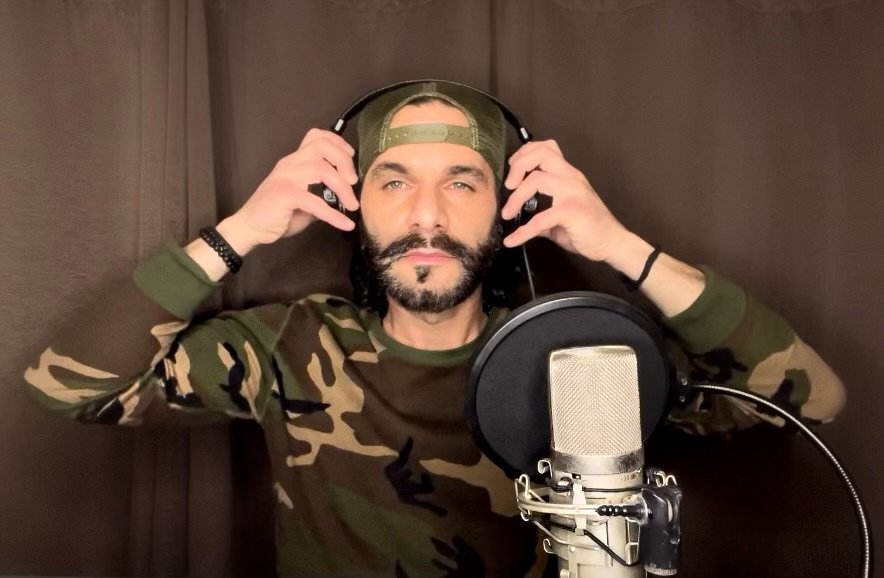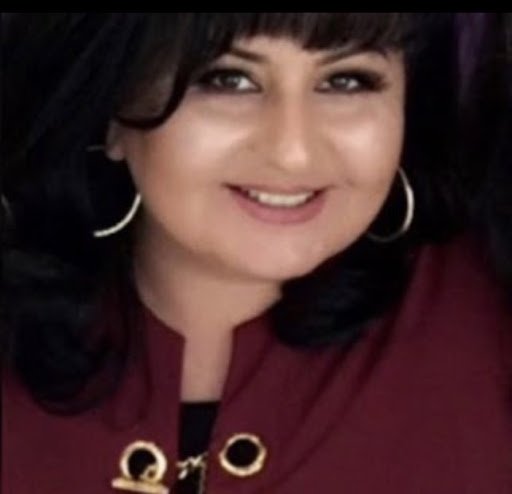For as long as I can remember, my cousin Harout has been singing Armenian revolutionary, or heghapokhagan, songs. His songs are a huge hit in our family and make the older generation beam with pride.
Harout is a singer and songwriter who uses the stories that were passed on to him to create and inspire, while singing about our tragic past and, sadly, our present state. He draws inspiration from our heroes, past and present.
Born in Philadelphia, Harout grew up in a family that remained true to its roots. “My passion for heghapokhagan and azkayin music started really early, probably at the age of six. My medz mayr would listen to heghapokhagan songs constantly. She’d put me on top of the kitchen table and encourage me to sing with her. Singing with her became one of my favorite pastimes,” Harout said.
“As I got older, she began to tell me stories about the Armenian Genocide. She went into great detail about the struggle of our family and countless others, but would always emphasize the importance of fighting back and never surrendering. The stories of our ancestors intrigued me so much as a child. One could say that I’m writing a soundtrack to the stories of our generation,” Harout continued.
I asked Harout what inspires him, and he said that a specific phrase galvanized him. “Park oo badeev, Hye Fedayee. We’ve endured many tragedies throughout the centuries, but our only glimmer of hope has been the brave, God fearing, country loving men and women of our homeland. I’ve heard so many stories of heroism, bravery and sacrifices of our sisters and brothers that have gone unnoticed. I think the least we can do is acknowledge them, celebrate and honor them by keeping their memories alive. The only way I know how to honor them is through music,” Harout reflected.
“There is something to be said about watching your homeland being torn apart from afar. It has transformed all of the stories I’ve heard throughout my life into something that I’m living through and hearing about in real time. I’ve been writing songs about our struggles, our cause, our heroes for years, but the occurrences of these past couple of years have lit a fire within me, ” Harout shared.

Harout grew up in a very tight knit family that exuded a strong sense of patriotism. “My family had ties with the ARF in Syria, Lebanon and then America. Discussions about current events in Armenia and their political ramifications were all I heard at family functions and on the dinner table. Even though I’d never been to the homeland, loving my country and its history was second nature for me at a young age. It wasn’t just the feeling of belonging to a country but to the organization that helped preserve the right for that very country to exist. Hearing my father, grandfather and uncles offer cheers to each other with Gomideh shot glasses proudly conveying, ‘Tashnagtsagan em, hbard em!’ left an indelible mark on me. I now have continued that tradition with my own family, using the same shot glasses,” Keoseyan said.
Harout’s songs have a universal theme: fight, resist and remember. “That’s all we have ever done: fight for our right to exist, resist annihilation and remember the ones we’ve lost. As Armenians, we will always thrive. We contribute such beautiful aspects of our culture, our music, our cuisine and much more to the world, but our essence is based on survival, and one only does that by fighting. If I had a message to the youth today, it would be to never stop fighting! Never surrender! Baykar, baykar meenchev verch,” Harout said.
One of Harout’s favorite performances was when he got the opportunity to sing alongside Karnig Sarkissian and Nersik Ispiryan at a Genocide vigil in California with thousands in attendance. He calls Sarkissian his musical inspiration. “Karnig was the only person I heard singing more heghapokhagan songs than my medz mayr. I’m sure I’ve listened to his albums more than a thousand times in my lifetime,” Harout said.
I asked Harout if he’s faced any challenges. “Artists are always faced with challenges, whether it’s writer’s block, lack of exposure, technical issues, but for me the most difficult one as a heghapokhagan singer is the size of my audience. I don’t sing dance songs or perform at weddings or christenings. There’s only one thing that I’m passionate about, and that’s azkayin music. We are lucky to have many chapters of AYF, ARF and Homenetmen all over the world, but even if I was asked to sing at each and every event, it would never satisfy my thirst to perform the old and new songs of our heroes,” he responded.
As our interview was winding down, I asked Harout where he sees himself in five years. “I see myself singing all across the country and internationally, with a few new songs under my belt about how we got Artsakh back. For anyone that says it’s not possible, we’ve done more in the past with less resources. Armenians have always been guided by faith, and I believe that Artsakh will always be ours, and we will be back. They’ve demolished many churches and historical sites, but my faith remains steadfast. Artsakh is Armenia. We are Armenians. We are Artsakh. Yegek miaseen yerkenk ays yerkeru! Follow me, and let’s sing these songs together.”
You can follow Harout on Instagram @haroutkeoseyan.



Every nation in the history of its existence leaves indelible art heritage in the form of monuments, paintings, works of literature, architecture, and of course, music. The music in the history of Armenia has played an enormous role in the formation of the national consciousness, self-identity, culture and spiritual values. This is wonderful work! For the writer and the artist at hand
I am so happy to see this article give recognition to the talents of Harout Keoseyan, who has been my friend for over 10 years. I have been very fortunate because through these years Harout has introduced me to his Armenian culture–especially the music–and the history of his people. I was blessed to hear Harout’s exquisite voice at several venues in the greater Philadelphia area. What caught my attention was how passionate he is when he sings, especially when singing haunting songs from Armenia. He shared with me their translations, and I began to learn of the Armenian genocide and all of its horrors. Harout’s passionate dedication of his talents on behalf of the Armenian people inspires me. I feel honored to call Harout Keoseyan my friend.